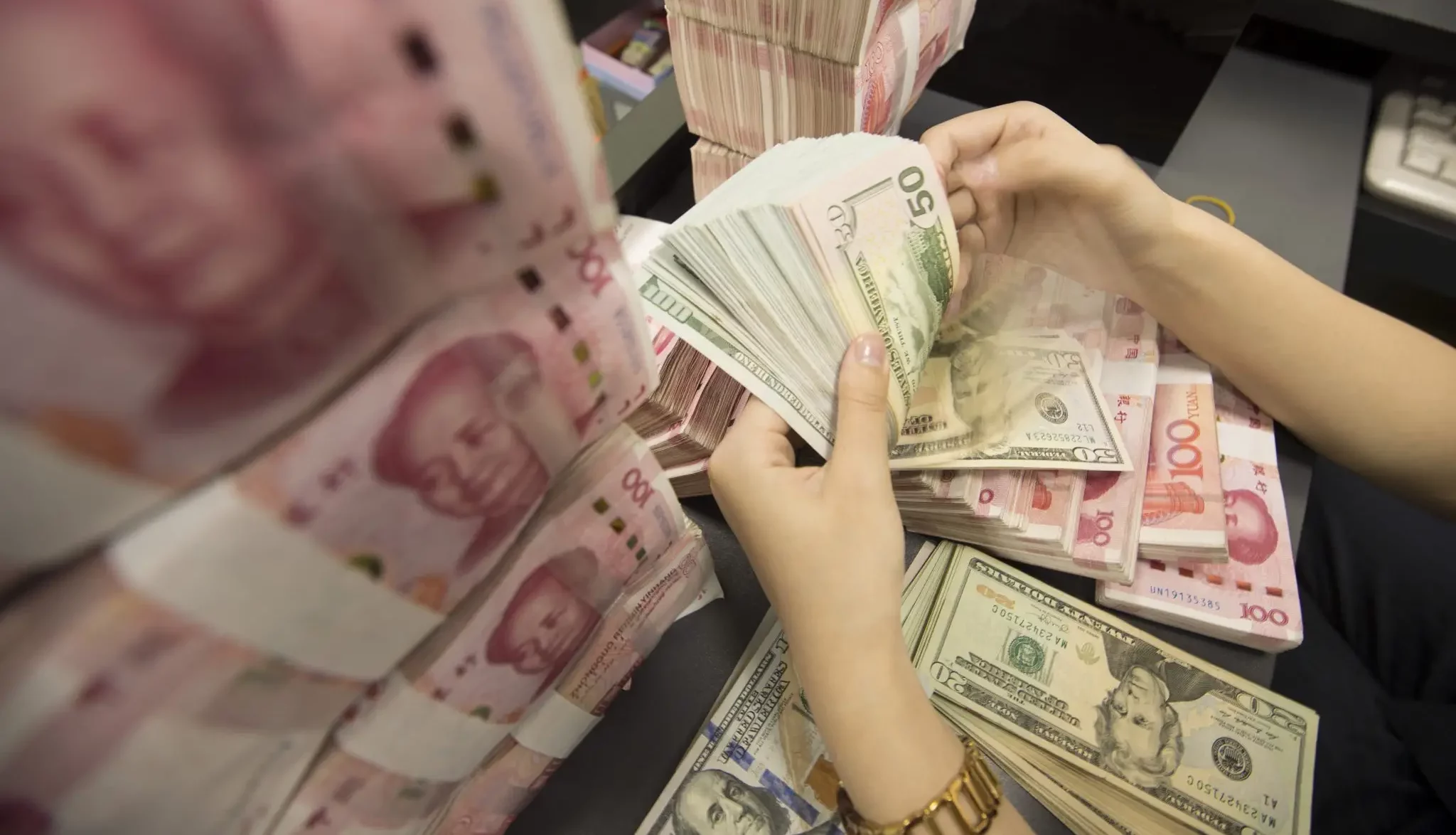US Dollar Dominance Under Threat Amid Yuan’s Global Ambitions
22.05.2025 14:00 2 min. read Alexander Stefanov
The dominance of the US dollar as the world’s primary reserve currency is facing mounting challenges.
With growing debt levels and renewed trade tensions, particularly under Trump’s aggressive tariff policies, confidence in the dollar is beginning to erode—and alternative currencies are stepping into the spotlight.
According to senior economist Hoe Eo Khor, the Chinese yuan is well-positioned to rise as a serious contender. In recent comments, Khor argued that the yuan’s global role could expand significantly if China allows broader access and improves currency convertibility.
“The era of US exceptionalism is fading,” he remarked. “The yuan is evolving, and with liberalized access, it could rival the dollar in global influence.”
However, for the yuan to achieve this, China must deepen its financial markets by offering more yuan-denominated assets—such as bonds and equities—and lift restrictions on currency flows. Khor emphasized that for global investors to trust a currency, it must be both backed by robust financial instruments and freely tradable.
The dollar’s troubles have been amplified by macroeconomic volatility and a shift in investor sentiment. Rising interest in Bitcoin and gold—both seen as hedges against uncertainty—reflects a growing desire to move away from the greenback.
Bitcoin, in particular, has rallied sharply amid concerns over US fiscal health, with analysts noting a strong correlation between dollar instability and crypto performance. “Instability is Bitcoin’s best friend,” some traders now suggest.
As geopolitical and economic tides shift, the global monetary system may be inching toward a multipolar currency order—one where the dollar no longer stands unchallenged.
-
1
Gold Beats U.S. Stock Market Over 25 Years, Even With Dividends Included
13.07.2025 15:00 1 min. read -
2
US Inflation Heats Up in June, Fueling Uncertainty Around Fed Cuts
15.07.2025 16:15 2 min. read -
3
U.S. Announces Sweeping New Tariffs on 30+ Countries
12.07.2025 16:30 2 min. read -
4
Key U.S. Economic Events to Watch Next Week
06.07.2025 19:00 2 min. read
US Inflation Heats Up in June, Fueling Uncertainty Around Fed Cuts
U.S. inflation accelerated in June, dealing a potential setback to expectations of imminent Federal Reserve rate cuts.
Gold Beats U.S. Stock Market Over 25 Years, Even With Dividends Included
In a surprising long-term performance shift, gold has officially outpaced the U.S. stock market over the past 25 years—dividends included.
U.S. Announces Sweeping New Tariffs on 30+ Countries
The United States has rolled out a broad set of new import tariffs this week, targeting over 30 countries and economic blocs in a sharp escalation of its trade protection measures, according to list from WatcherGuru.
Key U.S. Economic Events to Watch Next Week
After a week of record-setting gains in U.S. markets, investors are shifting focus to a quieter yet crucial stretch of macroeconomic developments.
-
1
Gold Beats U.S. Stock Market Over 25 Years, Even With Dividends Included
13.07.2025 15:00 1 min. read -
2
US Inflation Heats Up in June, Fueling Uncertainty Around Fed Cuts
15.07.2025 16:15 2 min. read -
3
U.S. Announces Sweeping New Tariffs on 30+ Countries
12.07.2025 16:30 2 min. read -
4
Key U.S. Economic Events to Watch Next Week
06.07.2025 19:00 2 min. read


